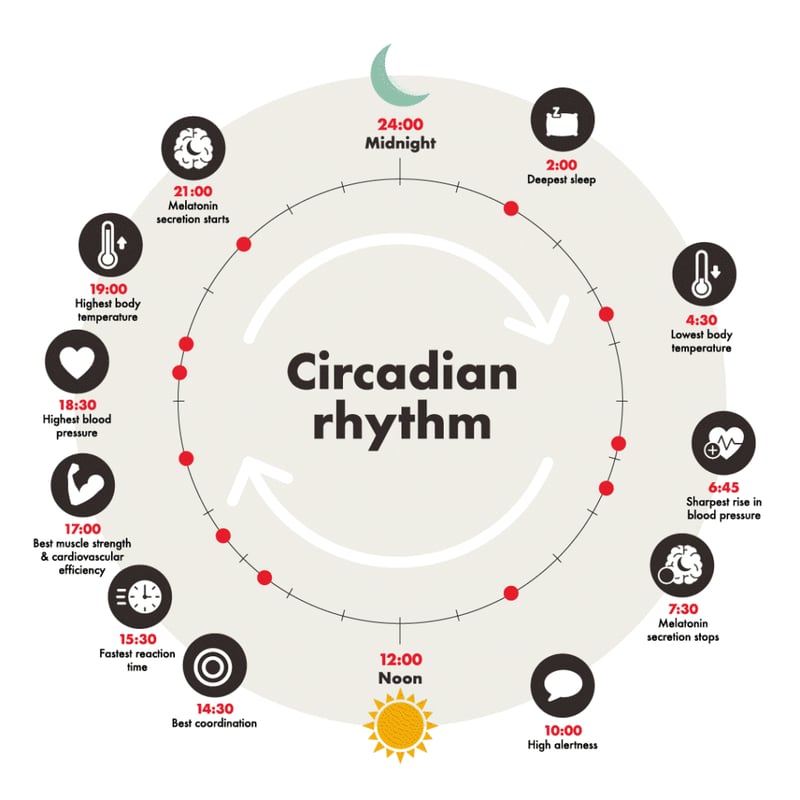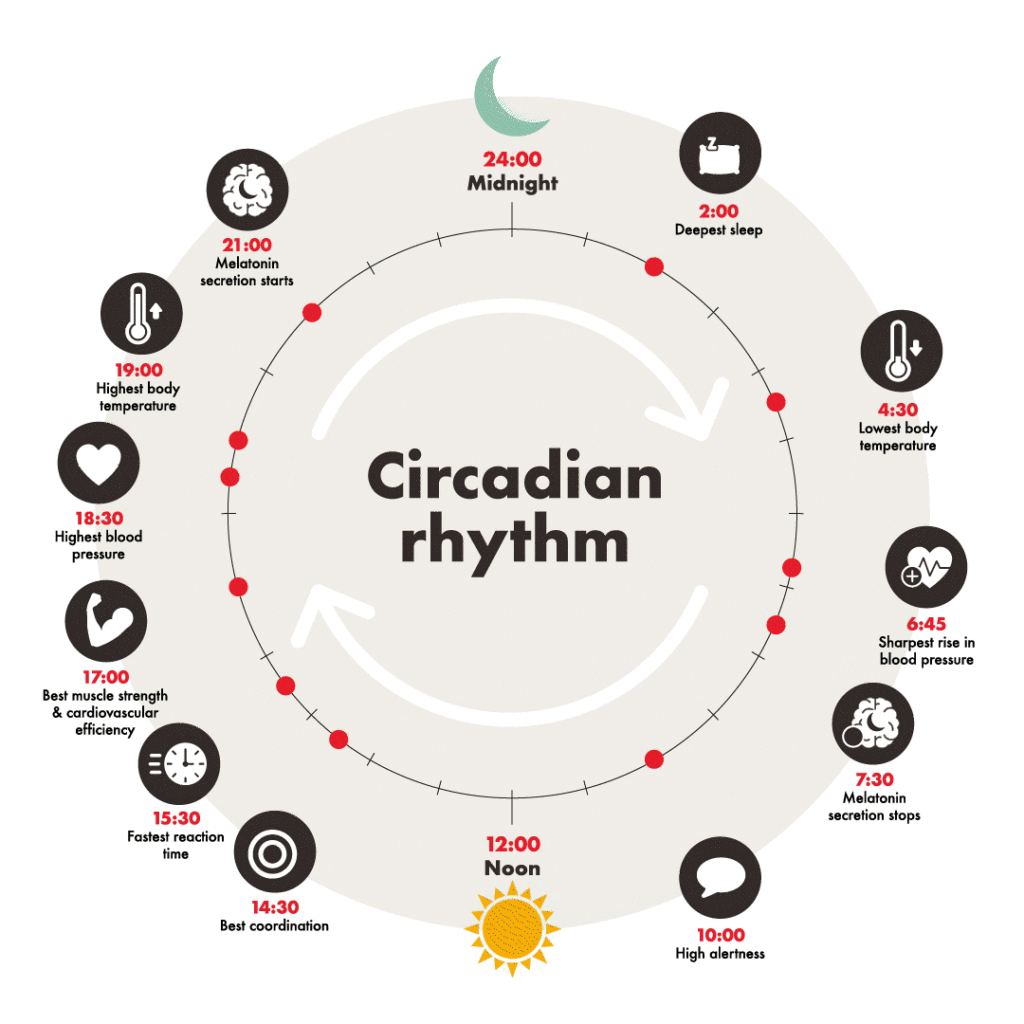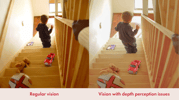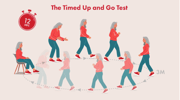
We are thrilled to introduce Jo Hemmings as Stannah’s expert psychologist. Jo has a wealth of experience in behavioural psychology and is a registered member of the British Psychological Society.
In her first blog for Stannah, Jo kicks off our two-part sleep guide, explaining the effect of sleep on our physical and mental wellbeing and the importance of getting a good night’s rest.
It’s hard to overestimate the importance of sleep. Like food and water, it is an essential function of our well-being and those who have suffered from poor sleep or sleep disorders like insomnia or sleep apnoea will understand how rapidly and dramatically a lack of quality sleep impacts your everyday life.
Sleep not only helps stave off diseases, regulates our stress levels and leaves us feeling refreshed in the morning, but it also makes a huge contribution to our cognitive function. Without enough quality sleep our ability to think clearly, concentrate and process memories and emotions are impaired.
Circadian Rhythm and how the sleep cycles can be broken
Most adults need between seven and nine hours of sleep per night to not feel tired. Some people may need a little less and others need a little more, depending on how active you are and your own unique sleep need, which varies throughout our lives, but generally balances out at around eight hours a night.
Circadian rhythms are 24-hour cycles that are part of the body’s internal clock, running quietly in the background to carry out essential functions and processes. One of the most important and well-known circadian rhythms is the sleep-wake cycle, encouraging long-term, regular sleep patterns. Circadian means ‘circa diem’ from the Latin for ‘around a day’.
Most of us have a natural circadian rhythm that is related to day and night and this rhythm is connected to the ‘master clock’ in our brains. This master clock is primarily driven by light, which acts as a trigger to coordinate our internal body clocks to sleep at night and wake in the morning. Certain disruptors like temperature – we all know how difficult it is to sleep in a heatwave, for example – stress and exercise also contribute to our sleep patterns.
Sometimes our circadian rhythms are really disrupted (for example when in pain or having anxiety and depression) and this can lead to poor quality sleep and insomnia. Even after the triggers have gone, it can be difficult to resume our usual sleep cycle. We may get significant sleeping problems like insomnia or a break in our sleep cycles, where we may wake up during a deep sleep cycle, have unpleasant dreams or find it difficult to sleep at all.
Light is the biggest influencer of the circadian rhythm. The brain contains a special region of nerve cells known as the hypothalamus, and a cluster of cells in the hypothalamus called the suprachiasmatic nucleus, which processes signals when the eyes are exposed to natural or artificial light. These signals help the brain determine whether it is day or night.
As natural light disappears in the evening, the body will release melatonin, a hormone that induces drowsiness. When the sun rises in the morning, the body will release the hormone known as cortisol which promotes energy and alertness.

The four sleep stages
Once we fall asleep, our bodies follow a sleep cycle divided into four key stages:
Stage 1 NREM (Non-rapid eye movement sleep): This first stage marks the transition between wakefulness and sleep and consists of light sleep. Muscles relax and your heart rate, breathing, and eye movements begin to slow down, as do your brain waves, which are more active when you are awake. Stage 1 typically lasts several minutes.
Stage 2 NREM: This second NREM sleep stage is characterised by deeper sleep as your heart rate and breathing rates continue slowing down and the muscles become more relaxed. Eye movements will cease, and your body temperature will decrease. Your brain waves slow down, and this stage is usually the most prolonged of the four stages of sleep.
Stage 3 NREM: This stage plays a key role in making you feel refreshed and alert the next day. Heartbeat, breathing, and brain wave activity all reach their lowest levels, and the muscles are as relaxed as they will be. This stage will be longer at first and decrease in duration throughout the night.
Stage 4 REM (Rapid eye movement): The first REM stage will occur about 90 minutes after you fall asleep. As the name suggests, your eyes will flicker under your eyelids. Breathing rate, heart rate, and blood pressure will begin to increase. This is your dream phase but is also believed to help in memory consolidation, the process where you convert recent experiences into longer-term memories. As we get older our REM sleep cycles decrease and we spend more time in the second and third stages of NREM sleep.
These four stages will repeat cyclically throughout the night until you wake up. For most people, the duration of each cycle will last about 90 minutes. NREM sleep is about 75% to 80% of each cycle. Sometimes we wake up briefly during the night, perhaps during vivid dreams, but we often don’t recall these fleeting moments.
If no sleep tips are working for you, don’t lie there worrying about lack of sleep. If you’re not asleep in 20 minutes, get up, go into another room, or make a milky drink. Wait until you feel sleepy – we all have nights like that from time to time, so don’t worry about one night, just go back to your usual routine the following night, or go to bed an hour earlier, as you are bound to need a little extra sleep.
Looking for more help and advice on improving your sleeping habits? Meet our new Occupational Therapist, Kate Sheehan from The OT Service, who has more guidance on sleep hygiene and how sleep impacts daily life.
Stay up to date
Latest Blogs

Whole Home Comfort with Stannah and HSL

Dame Zandra Rhodes x Stannah: When accessibility meets style
Could more people benefit from home adaptation support for hidden disabilities?
50 years of Stannah Stairlifts – A milestone grounded in purpose

BBC’s Dr Punam Krishan reveals a little-known Parkinson’s symptom to watch for...

Are you at risk of falling? Dr. Punam Krishan’s simple 12-second test could tell you...

Snore Wars: Could sleeping separately be the secret to a better night’s rest?

Proud to carry the Made in Britain mark!
Stairlifts made for you
All our stairlifts whether straight or curved are customised to suit you and your home so call now to arrange a visit to get your FREE personalised quote!